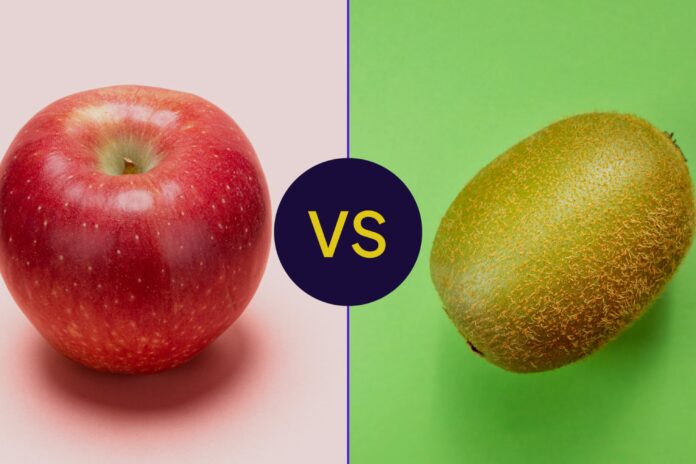Both kiwis and apples are recognized for their contributions to digestive wellness, but emerging evidence suggests that kiwi may offer a slight edge in promoting regularity, while both fruits provide comparable benefits for overall gut health. Understanding the specific nutritional profiles of each fruit can help individuals make informed choices to optimize their digestive function.
Kiwi: The Digestive Powerhouse
According to gut health experts, kiwi stands out primarily due to its effectiveness in alleviating constipation. Studies published in 2022 demonstrated that consuming two kiwis daily for four weeks significantly reduced constipation in individuals with functional constipation or irritable bowel syndrome (IBS-C), even outperforming fiber supplements in some cases.
While apples also support digestion, their primary benefit lies in regulating stool consistency rather than accelerating bowel movements. The unique combination of nutrients in kiwi—including the enzyme actinidin, which breaks down proteins, and a balanced blend of soluble and insoluble fiber—appears to be key to its superior digestive effects.
Why Kiwi Excels in Digestion
Kiwi fiber exhibits a higher water retention and swelling capacity compared to apple or wheat bran fiber. This property allows it to improve stool bulk and consistency more effectively, making it particularly helpful for those struggling with constipation. Although apples contain a comparable amount of fiber (around 4 grams per serving), their fiber composition differs: apples primarily contain pectin, a soluble fiber that softens stool.
Notably, the digestive benefits of apples are concentrated in the peel, which many people avoid eating. Furthermore, apples contain FODMAPs, short-chain carbohydrates that can cause digestive discomfort in sensitive individuals. For those prone to bloating or gas, kiwi offers a more gentle alternative.
Gut Health: A Closer Look
When it comes to overall gut health—the well-being of the digestive tract and its trillions of microbial inhabitants—kiwi and apple appear to be closely matched. Both fruits contain beneficial fibers that nourish the gut microbiome, the community of bacteria that play a vital role in digestion and immunity.
However, apples may have a slight advantage due to the pectin in their skin, which feeds healthy gut bacteria and promotes the production of short-chain fatty acids (SCFAs). SCFAs help maintain the gut barrier, the protective lining that prevents harmful substances from entering the bloodstream.
Antioxidants and Inflammation
Both kiwi and apple are rich in antioxidants, compounds that protect the gut lining from inflammation. Antioxidants help neutralize free radicals, unstable molecules that can damage cells and contribute to digestive disorders.
Practical Dietary Integration
To maximize digestive benefits, experts recommend consuming one apple or two kiwis daily. These fruits can be easily incorporated into meals and snacks, adding both flavor and nutritional value.
In conclusion, while both kiwi and apple contribute to digestive and gut health, kiwi’s unique enzyme and fiber composition make it a standout choice for those seeking relief from constipation or improved bowel regularity. For overall gut wellness, incorporating both fruits into a balanced diet can provide a synergistic boost to digestive function























